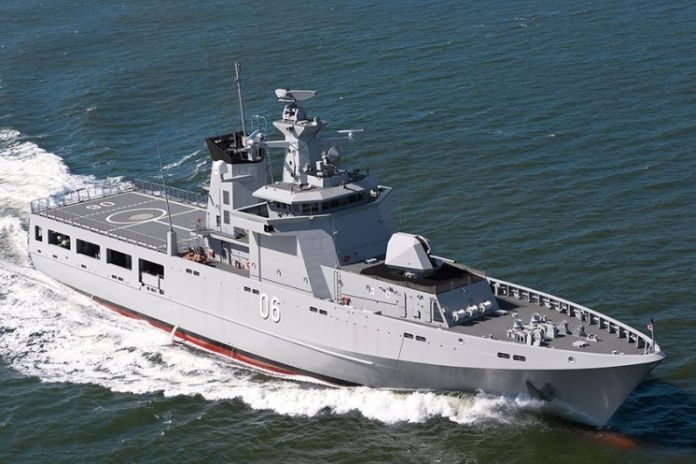Dear Sir:
Charged to protect and secure the nation’s marine borders. Armed with satellite and radar tracking, helicopter and drone imaging, mobile offshore stations, and fast intercept vessels, to quickly spot, engage, stop and search all vessels entering its waters.
Personnel specifically and technically trained to deploy and perform under all circumstances and to maintain its equipment and vessels; budgeted and projected as a critical expense, to maintain a heightened standard of efficiency and effectiveness, with funding set aside in reserve to set down any external threat or insurrection. While supporting and being a part of the nation’s Joint Defense Force.
Satellites and radar, its monitoring equipment and its operating procedure are essential to the mission and must be updated, upgraded and maintained as a priority with close overseeing of its personnel training, succession planning and overall costing.
Such personnel training and succession planning are closely linked to the service provider and equipment manufacturer to deliver theoretical training and practical experience to accredit personnel seeking promotions. Overall costing, inclusive of service contracts, monitoring equipment purchases and maintenance cost, are very closely overseen by budgeting experts from An Independent Office Of Budgets (OOB) to get the very best value for money.
Helicopters and drones, its operating equipment, its highly trained personnel and its processes are crucial to the Air Guard mission and its contribution to protect and secure the nation’s marine borders. Such equipment must be continuously updated, upgraded and maintained. Its operating personnel must be highly trained and receive timely systems upgrade certification, from equipment manufacturers, to maintain its succession planning, having skilled staff to replace retiring officers.
Its costing, purchase of equipment, operating consumables, maintenance and personnel cost, also must constantly prove its viability. Hence, supplying actual and live visual aid to surface units; main headquarters, Offshore Patrol Vessels (OPVs) and Interceptors.
OPVs with monitoring stations, large enough to house crews, store food and fuel, for lengthy deployments, and as a docking station for drones and interceptors. Monitoring satellite and radar while out at sea and closer to the marine borders, as it patrols a calculated length of assigned coastal border. Launching helicopters and drones to quickly visualize the situation, directing or confirming traffic across the monitored zone, and to predict responses. Deploying interceptors with full crews, multi-directional from the current location, to engage or enforce orders.
Therefore, matching speed and arms with most vessels illegally crossing the borders engaged in human trafficking or with illicit drugs.
Such coastal interceptors to quickly react, stopping and searching vessels entering its waters. These interceptors are armed and manned with highly trained personnel to operate and deal with any threats it may encounter.
Escorting the offending vessel out of the nation’s territorial waters or to a detention terminal on land to be processed. This coastal protective system, properly manned and equipped, and frequently executed to manage, protect and secure marine borders, with not go unnoticed by criminal traffickers, who will avoid this well defended nation and seek less monitored or easier destinations. Hereafter, reducing attempts to break the nation’s laws.
Terrance A. Jennings






